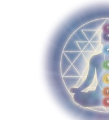


 |
 |
 |
|||
|
Some thoughts I've been having about what yoga means to me, "The body is our vehicle for awakeninig in this lifetime — care for it well" The Buddha These days, yoga, or Hatha Yoga, can mean pretty much anything to anyone, from a gentle stretching session in a gym to a rigourous, ascetic lifestyle as practiced by saddhus (wandering holy men) in the jungles and mountains of India. I like to see yoga practice as a method of becoming happy. It seems that happiness can most easily blossom java это when we live with awareness and compassion and that Yoga can be an excellent means of cultivating both these qualities. It helps us become more intimately atuned to body, breath, senses, emotions and mind so that our awareness of Self and compassion for ourselves can be the deep well from which all else springs. "The very purpose of life is to be happy, so it is important to discover what will bring about the greatest degree of happiness. ...we should devote our most serious efforts to bringing about mental peace." H.H. The Dalai Lama "Yoga Chitta Vritti Nirodha" Yoga stills the disturbances of the Mind. The second Yoga Sutra of Patanjali. Unfortunately much yoga practice these days seems to lead people away from happiness, because of competitiveness ("I'll never be as good as ..."); or a sense of inadequacy ( "if I practice enough/more then I'll be OK"); or superiority, thus separation from others ("I'm better than others bcause I practice yoga (or even this style of yoga)); or an obligatory set of self punishments, dutifully done in order to achieve a picture of virtue laid out in our or somebody else’s mind;.or as a haven of exoticism to escape to. However, if we can just live more at home within ourselves, then we can be at home with others and the world. We don't want to practice to achieve something: the practice is its own reward and its own delight. As a by-product we may very well feel stronger, more flexible and more at ease in our body, and more accepting of ourself. May I suggest some questions you may like to hold as you enquire into your practice? "Does my practice help create contentment, peacefulness and ease of Being, or does it on any level promote frustration, discontent, self-loathing and physical and/or emotional suffering?" "Do I feel pushed, coerced, forced or humiliated by my teacher to move deeper or faster than feels appropriate for me at this moment?" "Is 'progress' measured by how flexible and bendy I am or by how fully present I can be with whatever I am doing, no matter how superficially 'simple'?" (It seems to me that if flexiblity led to enlightenment then contortionists would be Buddhas!) The Eight-fold Path Traditionally, Hatha Yoga was codified by a sage called Patanjali, and is conceived of as being an eight-fold path. 1) The first rung is the five Yamas, codes of conduct involving restraint, abstinences, and self-regulation as regards our relationship with the external world and other people. The first and the one that sets the tone for the entire edifice of yoga is These Yamas are often understood (falsely to my mind) as moral impositions that we have to adhere to to make us "better persons". I would see then as guidelines to help us simply live more happily so that we don't have to bear the disturbances of eg violent actions, lying, stealing, or "wanting" which we all know will prey on our minds and unsettle us.
The Niyamas again are not "impositions" that we must adopt, but more like beacons that can guide us or ways of being that we can settle into.
|